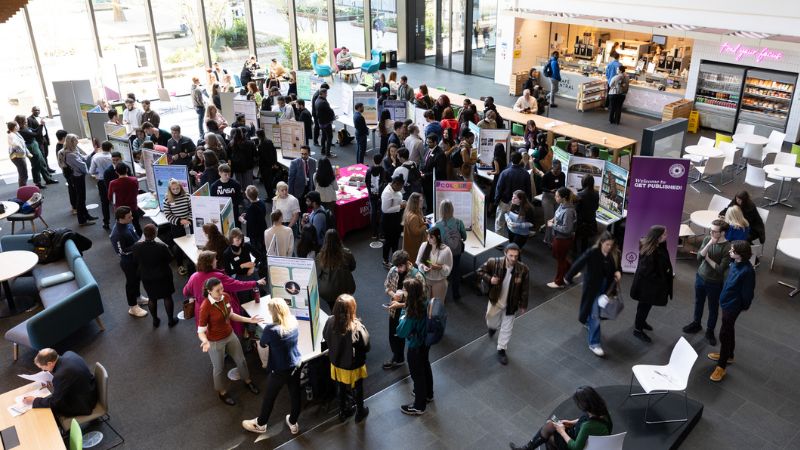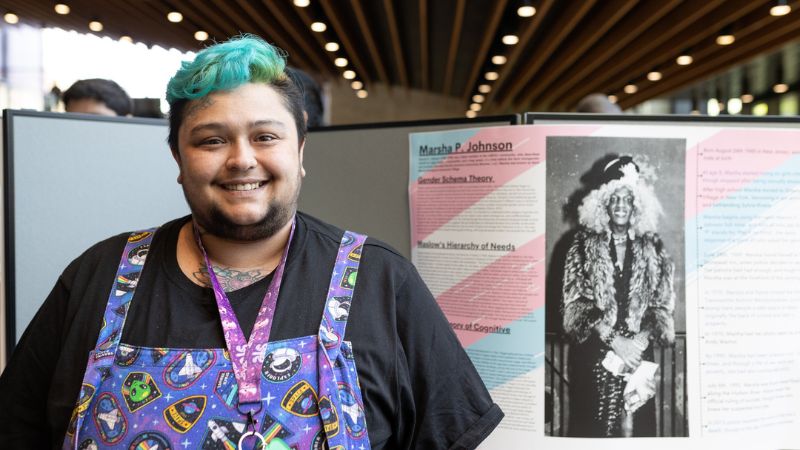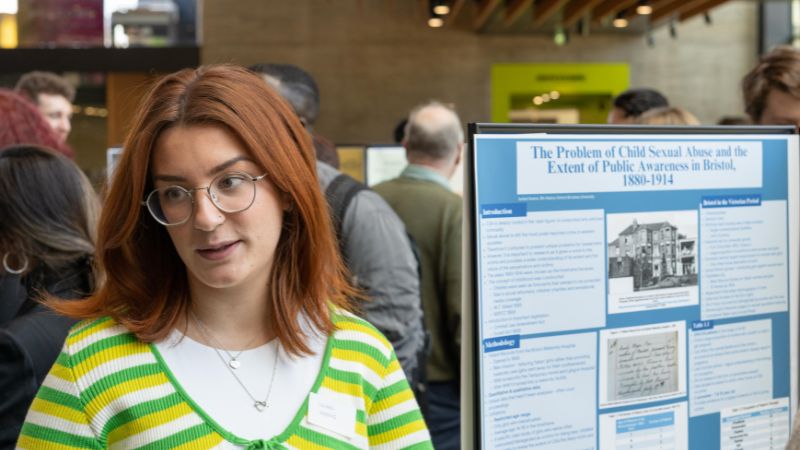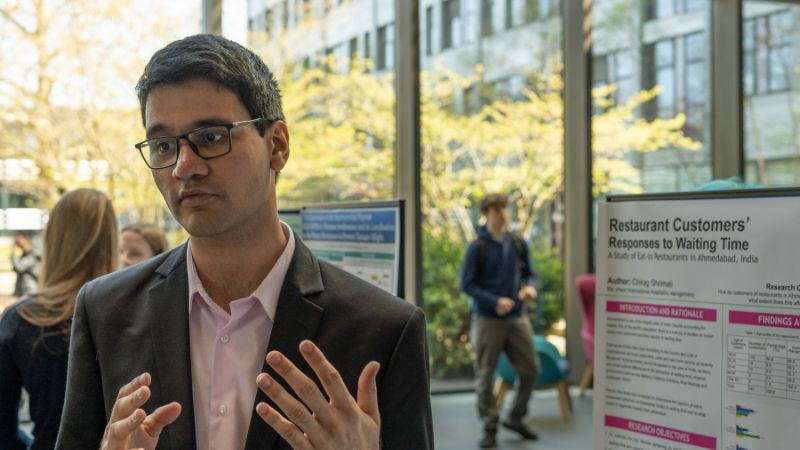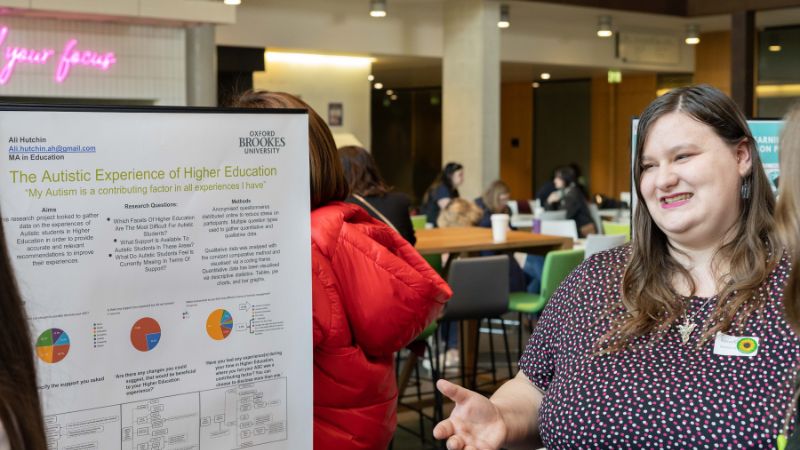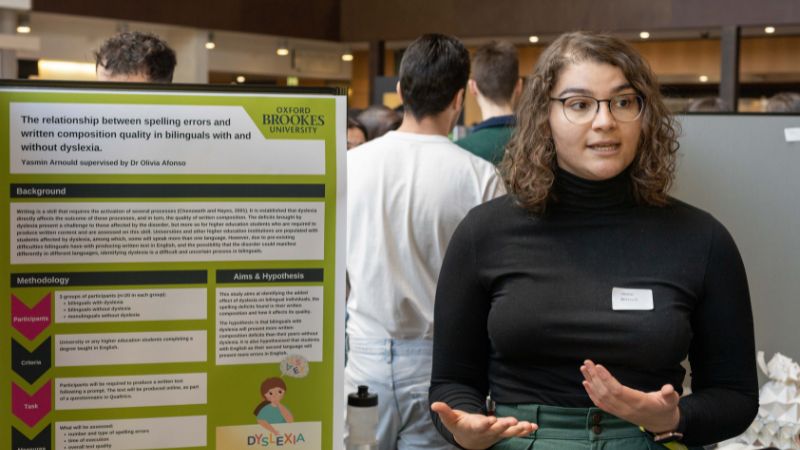Tell us about your research
My research is on dyslexia in bilingualism. Institutions have been very good at putting in place inclusive support plans that help students with learning disabilities, but bilingualism stays aside because there isn't much research on how it is affected by dyslexia. I wanted to address that by studying the added effect of dyslexia on bilingualism and try to investigate the different patterns of errors that can be found in groups of bilinguals with dyslexia that might be different to the spelling errors that are found in other groups.
I am currently recruiting and collecting data to hopefully get some results that are similar to my hypothesis - or maybe not! You never know when you’re doing research. But hopefully I will be contributing towards the knowledge in the field.
How have you found the event?
It’s great to see everyone’s research because we are very limited in terms of our interactions within departments. I am very aware of what’s happening in Psychology, but I have no idea what’s happening in Geography. Or even within the same faculty, in Health and Life Sciences, I have no idea what’s going on in Global Health and it’s so interesting.
So it’s a great event. I think it’s a great opportunity to meet new people, to get people talking about their research and things they're interested in.
Yasmin is currently recruiting participants for this research - find out how you can take part.
